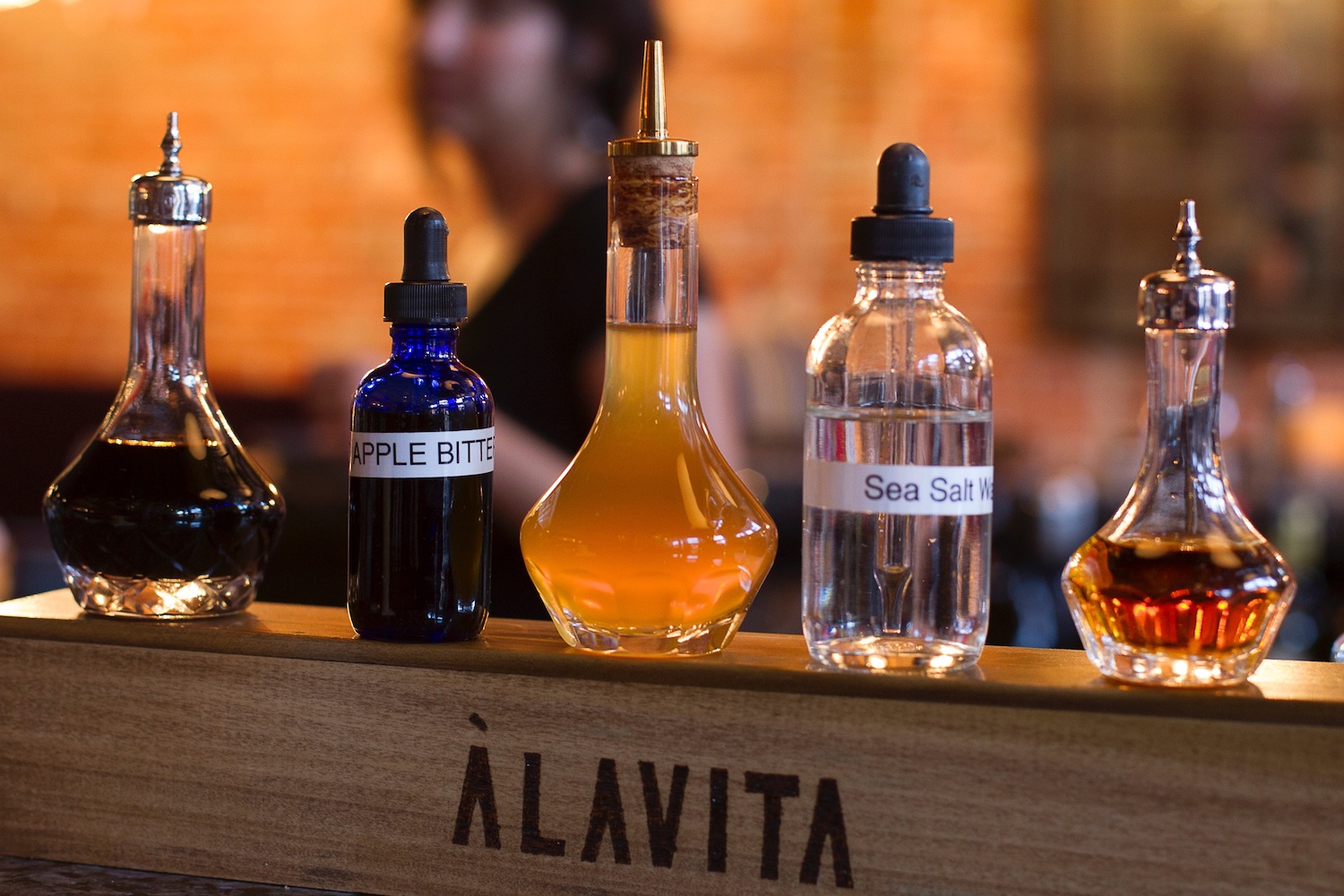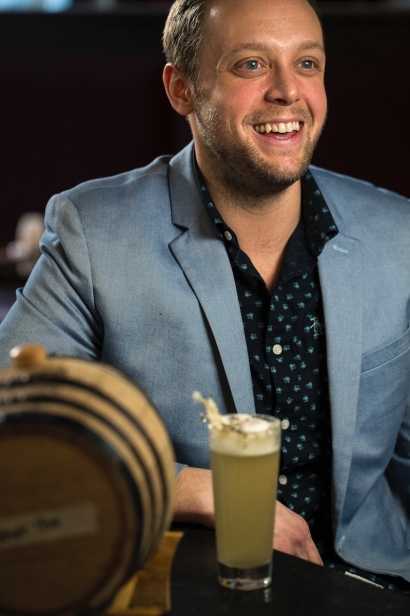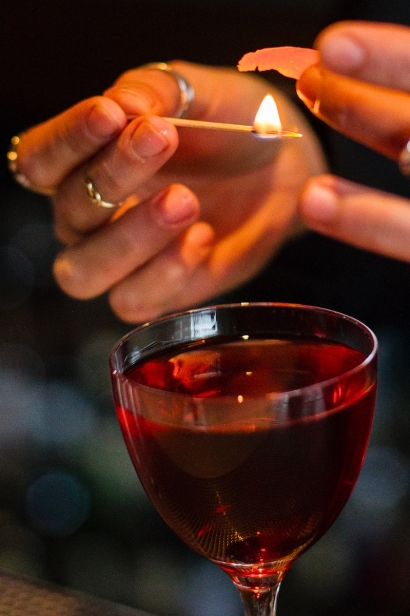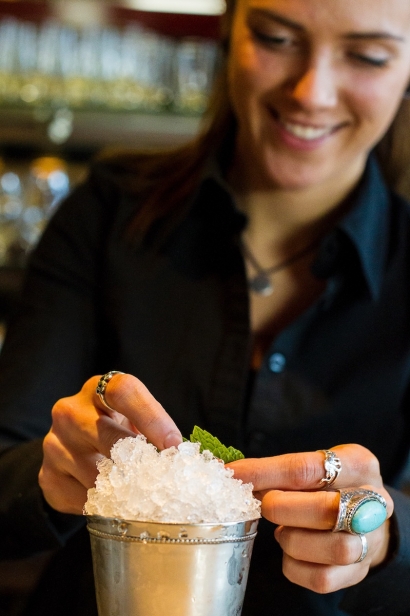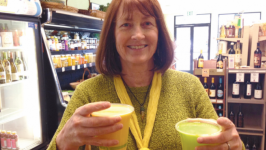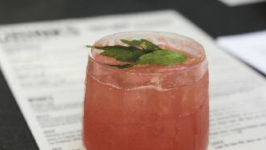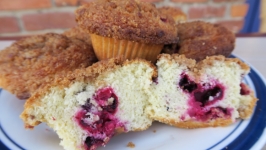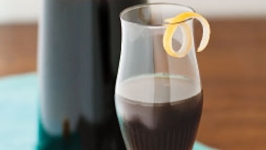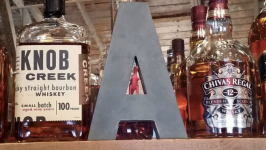Craft Cocktail Conundrum
Michael Reed, bar manager at Boise’s Mai Thai restaurant, is charged up. He dumps an armload of books on a table, his words pouring out in a tumble. He flew in last night from Phoenix, where he’d just attended a sommelier course, but his late flight did little to lessen his enthusiasm for craft cocktails. Not even the Idaho State Police has been able to do that.
Until last year, Boise bartenders eagerly jumped aboard a nationwide culinary cocktail bandwagon. Instead of tossing premixed and bottled ingredients together like bartenders had done for decades, these new mixologists took their cue from the local food movement, freely combining fresh ingredients and building innovative drinks from scratch. Some concocted their own bitters. Others infused booze with fruit, herbs and spices. Reed started mixing cocktails, then aging them in small oak barrels, which he says enhances and mellows their flavor.
But a year ago, officers from the Alcohol Beverage Control Division (ABC) of the Idaho State Police (ISP) descended on several downtown bars, confiscating house-made infusions and custom bitters at well-respected establishments like Red Feather Lounge, Fork, and Àlavita. Working a few doors down from those businesses, Mai Thai’s Michael Reed decided to quietly dispose of his barrel-aged cocktails.
The ISP’s interpretation of state laws and regulations prohibits Idaho licensed bars and restaurants from offering house-infused liquors or barrel-aged cocktails to their patrons, according to ABC Captain Charlie Spencer. He adds that rules on food safety, consumer protection and alcohol manufacturing govern these types of spirits as well as an Idaho statute that reads, “It shall be unlawful for any licensee to sell, keep for sale, dispense, give away, or otherwise dispose of any liquor in the original containers or otherwise than by retail sale by the drink.”
Because of these restrictions, what Reed and I are about to do feels a bit illicit. We’re in a private location as he cradles that small oak barrel under his arm and uncorks it. Reed opens the tap on his stash and pours me a glass of American Trilogy, a twist on a classic Old Fashioned that he mixed about a year ago. We’re about to taste what Idahoans are now missing at their local watering holes.
As we hold the barrel-aged cocktail to the light, the drink is visibly cloudy. One sip releases a tannic, or cottonmouth, feel. Because of its smokiness and spicy hint of tobacco, it would likely pair well with a cigar. Its aftertaste also lingers for nearly a minute like a high-end bourbon or single malt Scotch.
Idaho isn’t an outlier when it comes to outlawing the retail sale of these custom-made spirits at bars and restaurants. Neighboring states like Utah and Washington have similar laws in place. For instance, Utah’s Department of Alcoholic Beverage Control issued an opinion last spring that explicitly prohibits bars from “infusing spirits with flavor; i.e., oranges, lemons, grapefruit, pears and peaches, herbs and spices to create custom-flavored spirits.”
The federal government also restricts “rectifying or blending” distilled spirits to those that hold a specific permit. And only those who maintain a valid registration are allowed to process distilled spirits, including mixing, in a bonded manufacturing facility. But the Treasury Department’s Alcohol and Tobacco Tax and Trade Bureau, in a 2012 statement, said that it would forego enforcement action against licensed retailers who infuse their own liquor as long as they have paid the appropriate taxes on their spirits.
Oregon, considered the birthplace of barrel-aged cocktails in the United States, also has a law similar to Idaho’s that prohibits rebottling of spirits. But the state Liquor Control Commission there has a different interpretation, which allows bars and restaurants to sell house-made infusions and barrel-aged drinks. Commission spokeswoman Christie Scott says, “We don’t have a prohibition against it as long as it’s in a separate decanter.”
Dave Krick, owner of Red Feather Lounge and Bittercreek Alehouse, believes more clarity in Idaho law or a looser interpretation, like Oregon’s, would help local businesses. He says, “The problem with the alcohol code is that it’s a little bit like reading the Bible. Ten people can read it and ten people can read it differently.”
Boise lawyer David Arkoosh agrees that some parts of the law are unclear. He works on regulatory and license issues related to alcohol. He points out, “The Idaho statute is not clearly written. And all through our wine, beer and liquor statutes you’ll see that they are archaic and difficult to interpret.” He adds, “State law enforcement and government agencies, not just producers and retailers, are struggling to interpret and fairly enforce the rules.”
Other managers and owners of Boise restaurants hope for a resolution to the issue. Remi Courcenet, food and beverage manager at the Modern Hotel and Bar, says, “If these laws would be more flexible, we feel that it would allow us to do more and be more creative.” Cameron Lumsdon, owner of Fork and Àlavita, expresses a similar opinion.
But tweaks to Idaho law aren’t likely to happen anytime soon. According to Reed, an effort to change legislation to allow bartenders to experiment and create unique flavors and cocktails has just started up again after some initial activity last year. He says Mai Thai managers have hired a lawyer and, “We’re at the first stage of trying to make sure that we can find appropriate language.”
As innovators in the Idaho bar industry strive to push the bounds of creativity and offer customers new tastes and unique flavors, law enforcement has put the brakes, at least for now, on the home-grown craft cocktail movement. Any hopes of ending this impasse will have to wait for new or improved legislation to help clarify Idaho’s laws.
Red Feather Lounge | @redfeatherlounge
Fork
Àlavita | @alavita_boise
Modern Hotel and Bar | @modernhotel


